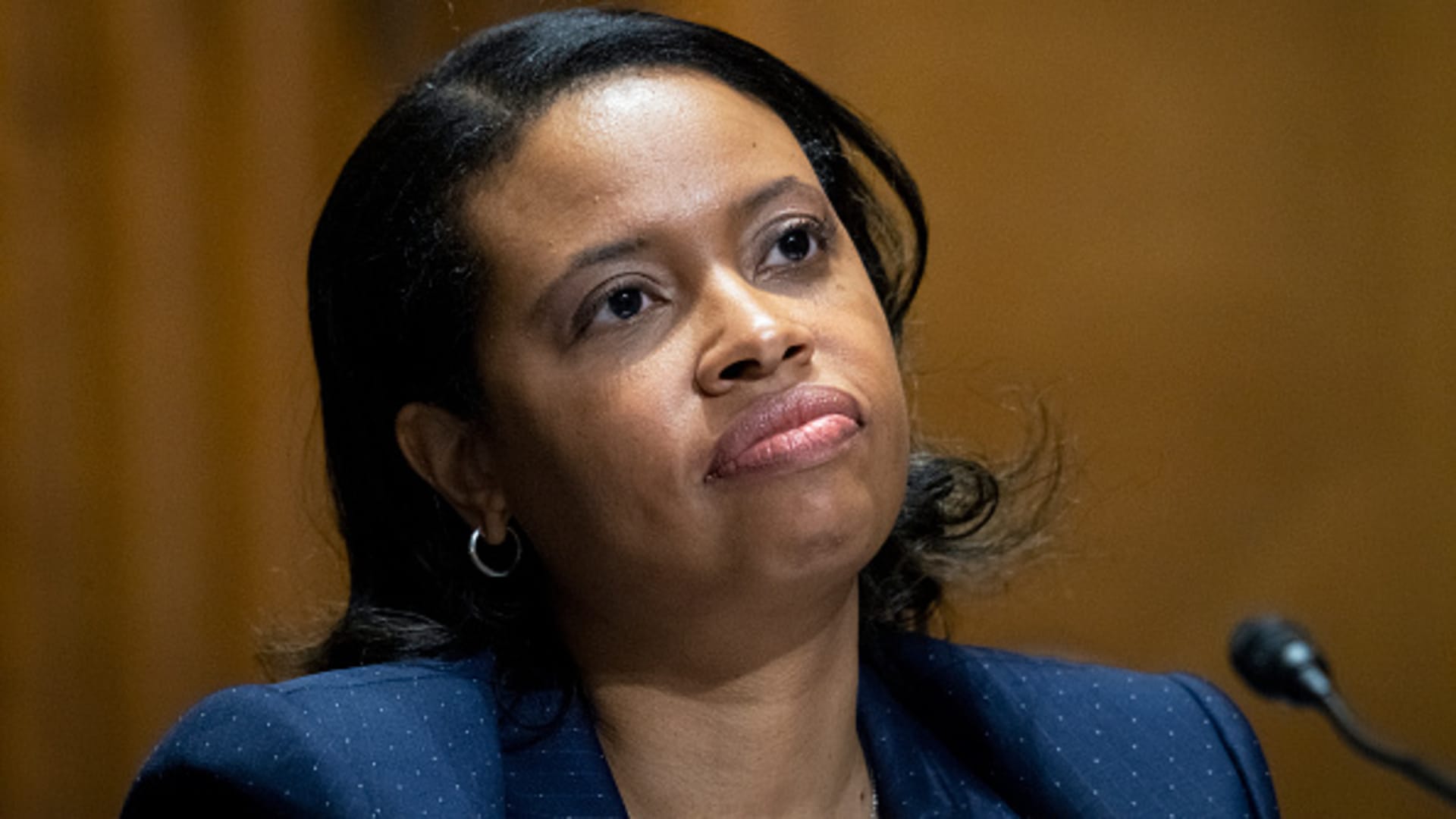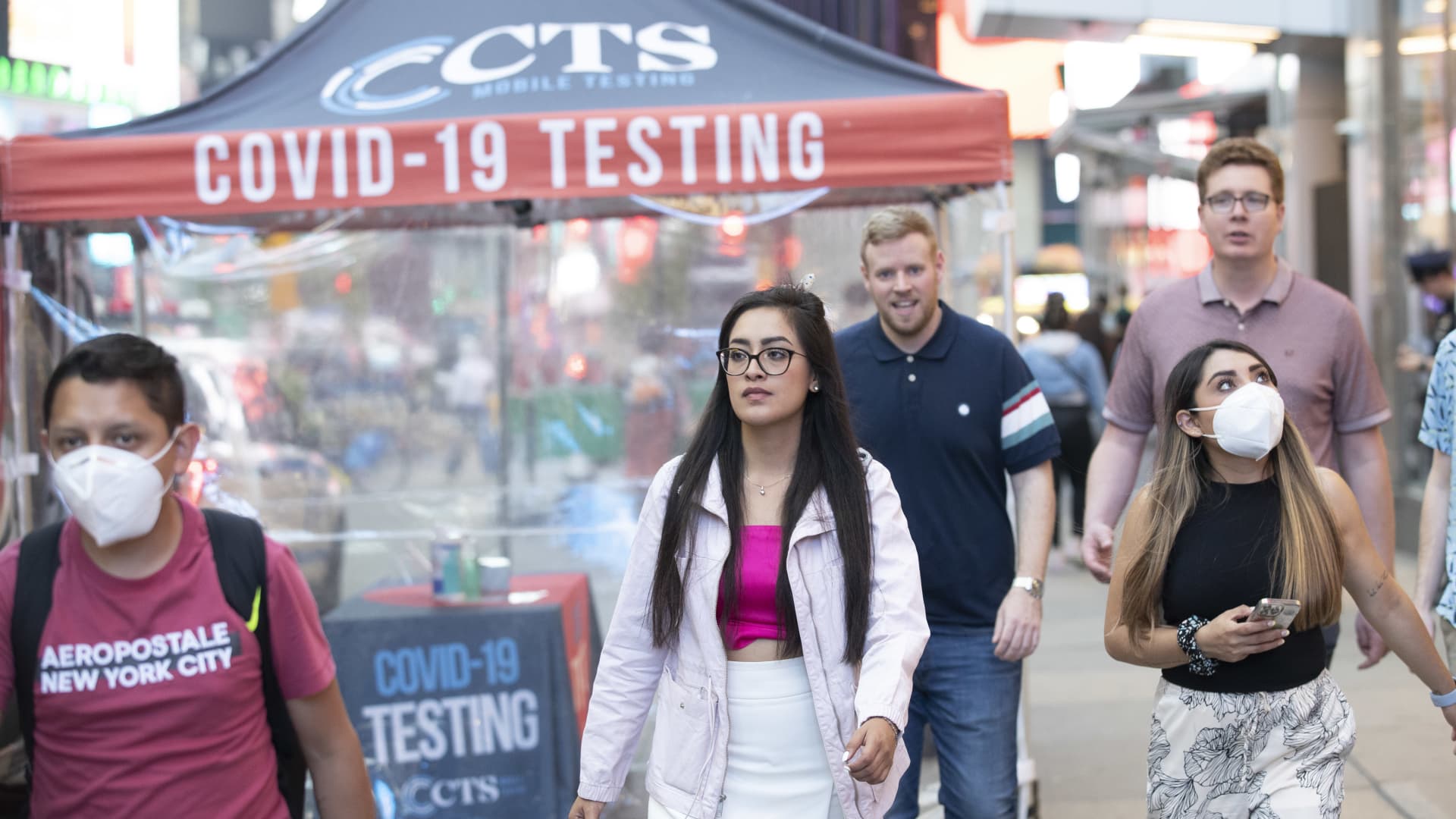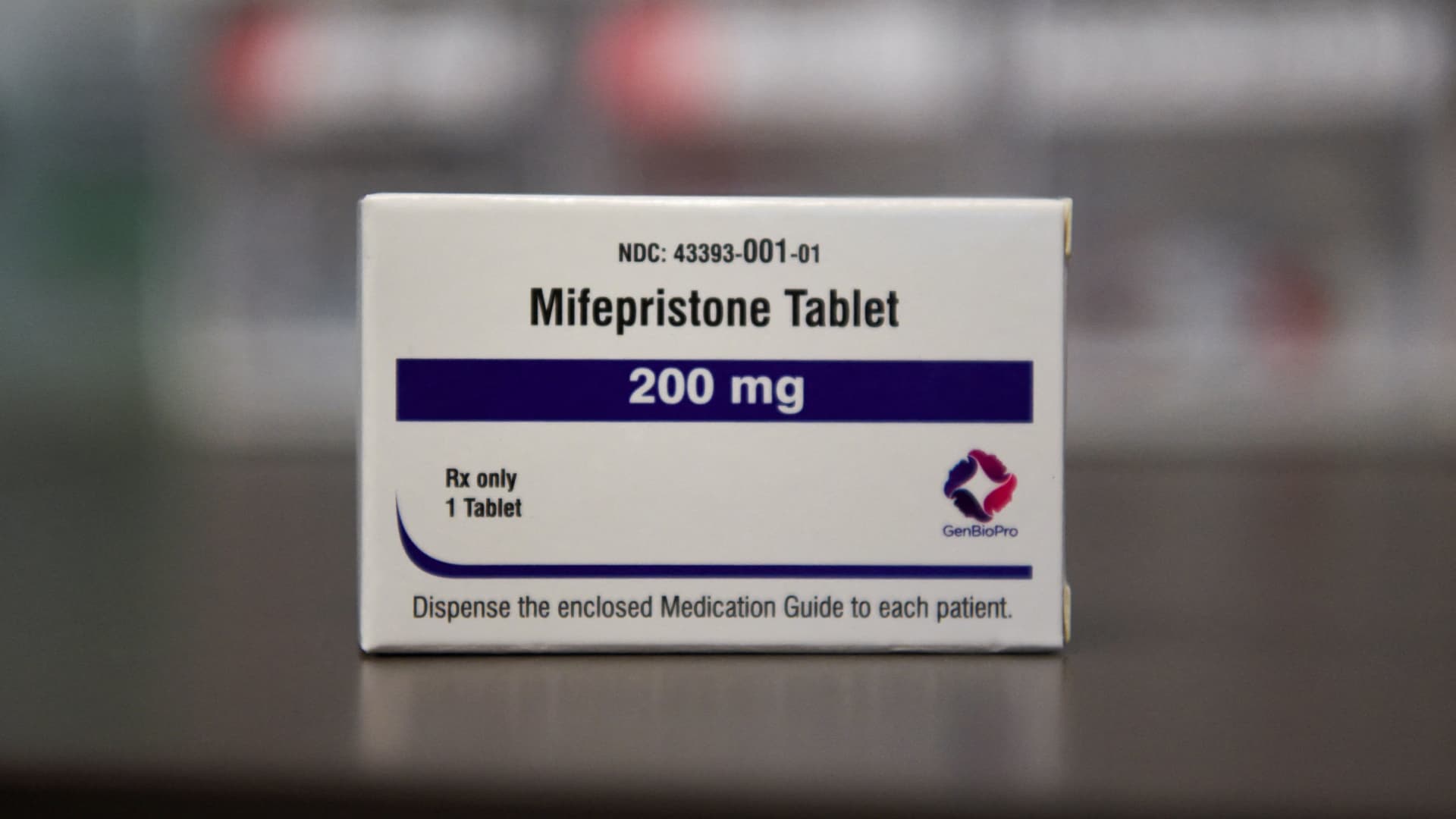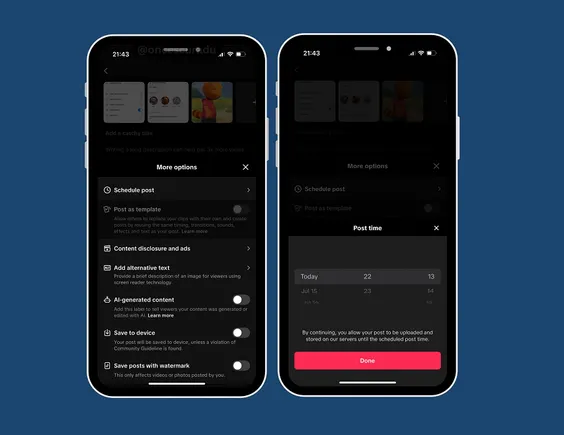Biden warns U.S. won't have enough Covid vaccine shots this fall if Congress fails to pass funding
However, Biden said the U.S. currently has enough vaccine supply to ensure people ages 50 and older can get their fourth doses.
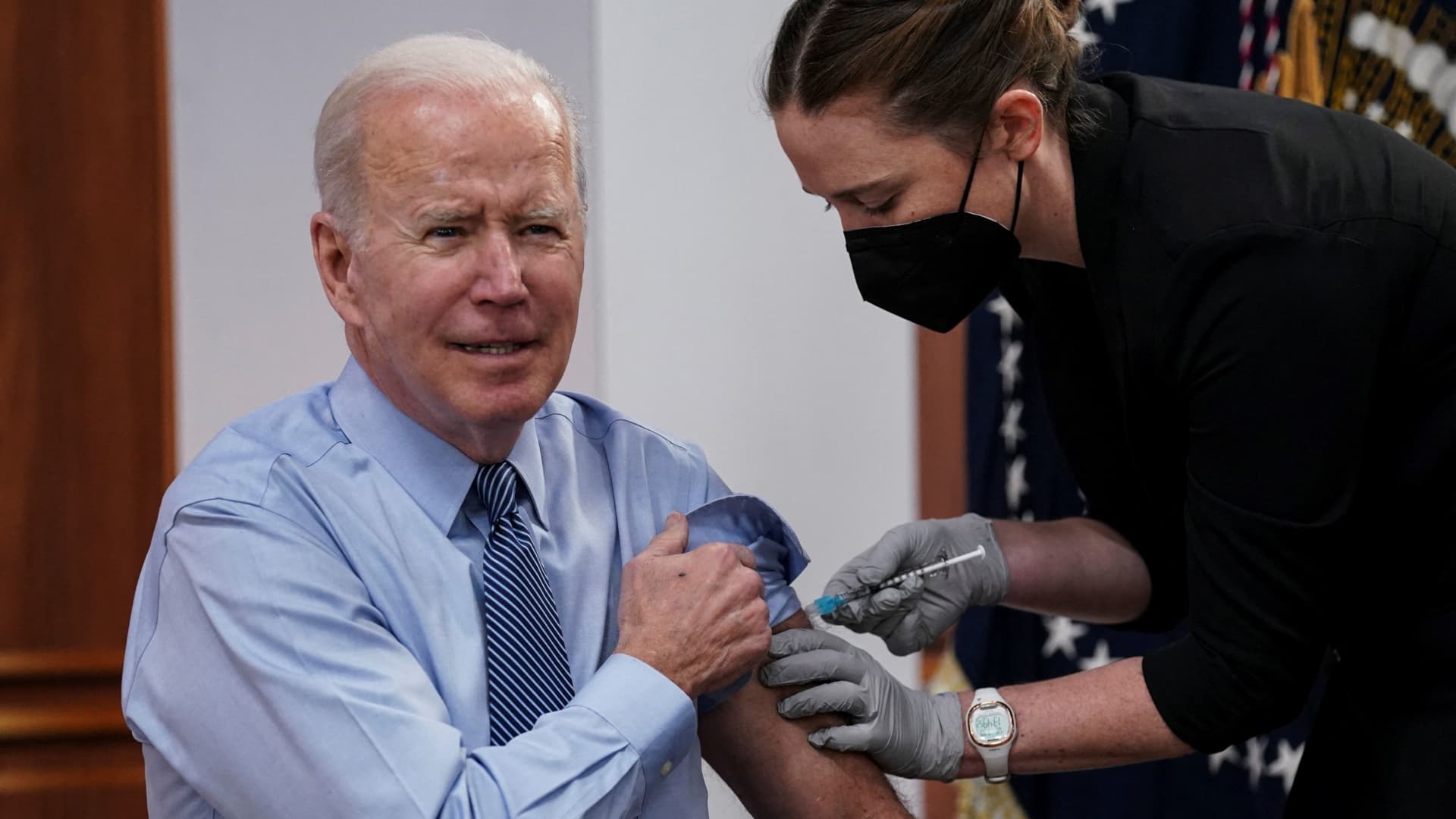
U.S. President Joe Biden receives a second coranavirus disease (COVID-19) booster vaccination after delivering remarks on COVID-19 in the Eisenhower Executive Office Building’s South Court Auditorium at the White House in Washington, U.S., March 30, 2022.
Kevin Lamarque | Reuters
President Joe Biden warned Wednesday that the U.S. will not have enough Covid vaccine shots this fall to ensure free and easy access for all Americans if Congress fails to pass the $22.5 billion in additional funding the administration has requested.
Biden said the U.S. has enough supply to ensure people eligible for fourth shots have access to them. The Centers for Disease Control and Prevention this week recommended an additional Pfizer or Moderna dose for people ages 50 and older, as well as certain younger individuals who have compromised immune systems.
Biden, 79, received his fourth dose on live television after his remarks.
As the country enters a new phase of its vaccination push, the president called on Congress to act to ensure the U.S. has the resources it needs if another wave of infection emerges.
"Americans are back to living their lives again," Biden said. "We can't surrender that. Congress please act. You have to act immediately. The consequences of inaction are severe, they will only grow with time."
Dawn O'Connell, a top official at the Health and Human Services Department, told Congress on Wednesday that the U.S. does not have the doses it needs if a booster campaign for the general population proves necessary in the fall.
"We do have significant concerns about whether we would have enough vaccine if we were to do a general population boost campaign in the fall, particularly if we're going to need a variant-specific vaccine," O'Connell told House Select Committee on the Coronavirus Crisis.
"We don't have any of those doses, nor do we have any funding for those doses," said O'Connell, assistant secretary for preparedness and response at HHS.
New infections and hospitalizations have plummeted more than 90% from the peak of the winter omicron wave in January. However, the decline of infections has slowed and plateaued in recent days as a more contagious omicron subvariant, BA.2, has become the dominant version of Covid in the U.S. BA.2 has already caused new waves of infection in Europe and China.
White House chief medical advisor Dr. Anthony Fauci said earlier this month that BA.2 will likely cause infections to rise in the U.S. He does not expect another surge in cases.
The Institute for Health Metrics and Evaluation in Washington state is projecting that infections will continue to fall through the spring and summer. However, Ali Mokdad, an epidemiologist at IHME, said another surge could happen in the fall as immunity from the vaccines wanes and people move inside during the colder weather.
Democrats and Republicans in Congress have failed to reach a bipartisan agreement on $15 billion in Covid funding, a sum lower than the White House request. Republicans want to cover any new spending by cutting funds already appropriated for state and local governments. Democrats rejected that demand.
Negotiations are ongoing in the House and Senate to find a compromise.
Biden also warned the U.S. will not have the money to surge testing, monoclonal antibody treatments and antiviral pills if another Covid wave sweeps the U.S.
The president also unveiled a new government website, covid.gov, where Americans can find out where they can obtain masks, tests, vaccines and treatments.

 ShanonG
ShanonG 








